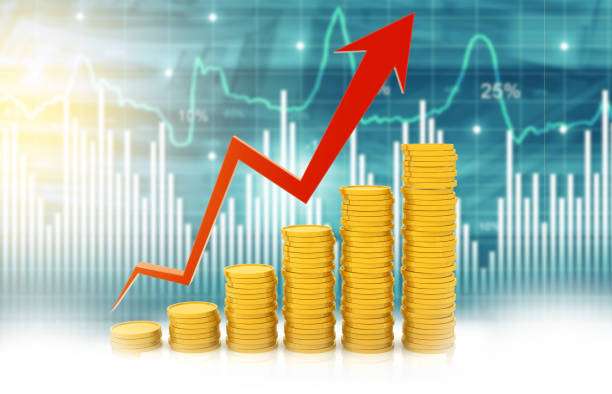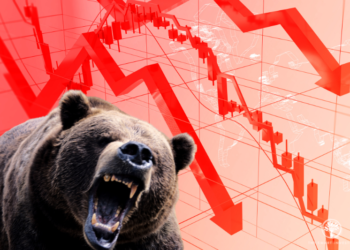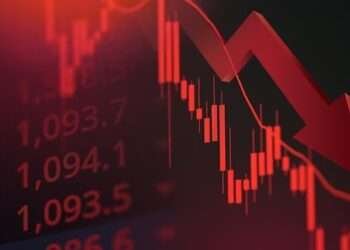The Ghana Stock Exchange (GSE) experienced an intriguing trading session that underscored the resilience of Ghana’s financial equities even amid overall market turbulence.
While the benchmark GSE Composite Index (GSE-CI) dropped sharply by 69.05 points (-0.82%) to close at 8,378.59 points, the GSE Financial Stocks Index (GSE-FSI) showed remarkable strength, climbing by 0.13% to 4,084.15 points.
The divergence in performance between the broader market and financial equities highlighted the growing investor confidence in Ghana’s banking and finance sector despite broader profit-taking in other segments.
Market activity on the day was exceptionally strong, reflecting increased investor participation and liquidity. A total of 1,606,700 shares valued at GHS 4,340,971.55 were traded across 20 listed equities.
Compared to the previous trading day, this represented a 75% improvement in trading volume and a staggering 268% increase in turnover, signaling renewed optimism in the market. Analysts attribute the surge to bargain hunting by institutional investors, particularly in financial and energy stocks.
Benchmark Dips
Despite the general decline in the composite index, financial equities demonstrated stability, leading to the upward movement of the GSE Financial Stocks Index. This resilience was buoyed by modest price gains in key financial institutions such as Societe Generale Ghana (+5.81%), GCB Bank (+0.06%), and Clydestone Ghana (+5.26%).
The positive performance of these financial counters not only lifted the GSE-FSI but also underscored investors’ faith in the strength and profitability of Ghana’s financial sector.
Market watchers noted that investors continue to favor financial stocks due to their consistent dividend yields, strong liquidity positions, and improved regulatory compliance following the Bank of Ghana’s sector cleanup.
Gainers and Losers: Societe Generale Leads the Pack
Out of the 20 equities traded, four recorded gains while two lost value.
Societe Generale Ghana emerged as the top gainer, appreciating by 5.81% to close at GHS 2.55 per share. It was followed by Clydestone Ghana, which advanced 5.26%, Ghana Oil Company (GOIL) rising 2.45%, and GCB Bank adding 0.06%.
On the downside, CalBank recorded a 5.56% decline, while MTN Ghana, one of the most actively traded equities, fell 1.61%. Despite the losses, MTN Ghana maintained its dominance in market activity, recording 781,191 traded shares, followed closely by CalBank with 766,156 shares, Republic Bank Ghana (20,555), and Fan Milk (18,992).
The total market capitalization of the Ghana Stock Exchange remained robust at GHS 166.3 billion, reflecting the market’s steady growth trajectory for 2025.
Despite the minor pullback in the composite index, the GSE continues to post one of its best performances in recent years, supported by investor-friendly policies, resilient corporate earnings, and Ghana’s improving macroeconomic outlook.
As of this session, the GSE-CI reflects a 1-week loss of 1.31%, a 4-week gain of 4.12%, and an impressive year-to-date gain of 71.39%. The GSE-FSI, on the other hand, shows a 1-week gain of 1.59%, a 4-week gain of 9.25%, and a year-to-date gain of 71.55% — slightly outperforming the broader market.
Investor Outlook: Confidence Remains High
Market analysts remain optimistic about the medium-term outlook for the GSE, particularly the financial sector. The continued rise of the GSE-FSI amid broader market volatility is seen as an indicator of investor trust in Ghana’s banking institutions, which have demonstrated resilience despite economic headwinds.
Investors are also keenly watching quarterly earnings reports and dividend announcements, which could further influence market sentiment in the coming weeks. The combination of strong liquidity, disciplined fiscal management, and stable inflation trends could sustain market momentum into the last quarter of 2025.
The day’s trading session reaffirmed the pivotal role of financial institutions in stabilizing Ghana’s capital market. As the GSE Financial Stocks Index continues to outperform the benchmark index, it highlights the sector’s growing influence and investors’ appetite for financial equities as safe, income-generating assets.
While profit-taking in non-financial stocks led to the dip in the GSE Composite Index, the sustained rally in financial counters signals that investor confidence in Ghana’s financial sector remains unshaken, a promising sign for the overall strength and future growth of the Ghana Stock Exchange.























